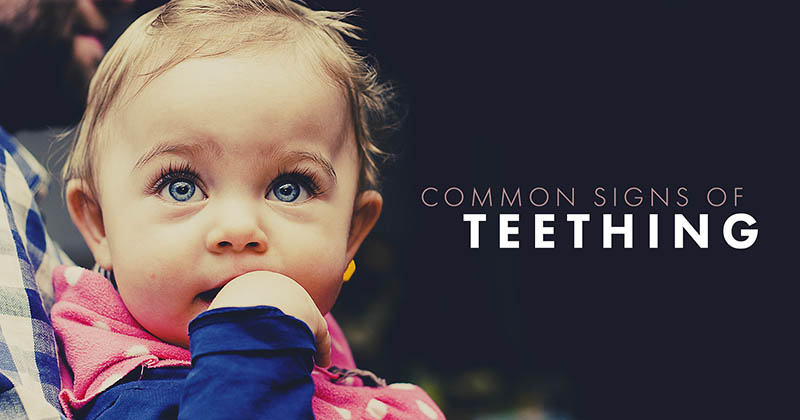Your baby is growing up, and so are their teeth! According to the American Dental Association most babies develop their first tooth around six months of age. After that first eruption your baby will have a full set of primary teeth in three years.
Although it is usually pretty easy to spot teething, we created a list of some common signs of teething. If your baby exhibits any of these signs along with irritability and excessive drooling, then get out your teething tools and even ask your dentist or doctor about what you can do to help your teething toddler.
Decreased sleep
Is your little one not falling asleep as easily as they used to? If so, teething could be the problem. As the teeth begin to come in your child will experience pain, which makes it more difficult for them to fall asleep and stay asleep. Teething toddlers will wake up more often due to the gum discomfort and pain that they feel.
Excessive biting or gnawing
If your tiny tyke can’t seem to keep things out of their mouth, they could be developing teeth! Often times babies bite and gnaw on things to help relieve the pressure from their gums. Instead of hiding every toy, try a teething ring to keep your toddler happy.
Rubbing of ears or cheeks
If your child is pulling at their ear or cheek, it could mean a couple of different things. It could be a sign of an ear infection, or it could mean teething. When teeth erupt they can cause pain that spreads across the cheeks and ears. If this happens, a trip to the doctor may be needed to rule out an ear infection.
Loss of appetite
When teething begins, a child experiences sore and tender gums. The pain typically causes them to refuse food, so try softer foods to help your child get nutrients while their teeth transition in.
Make sure to take good care of your child’s teeth and mouth even before the eruption of the first tooth. After teeth begin to develop, schedule a dentist’s appointment so that everything is going well in your child’s mouth.

